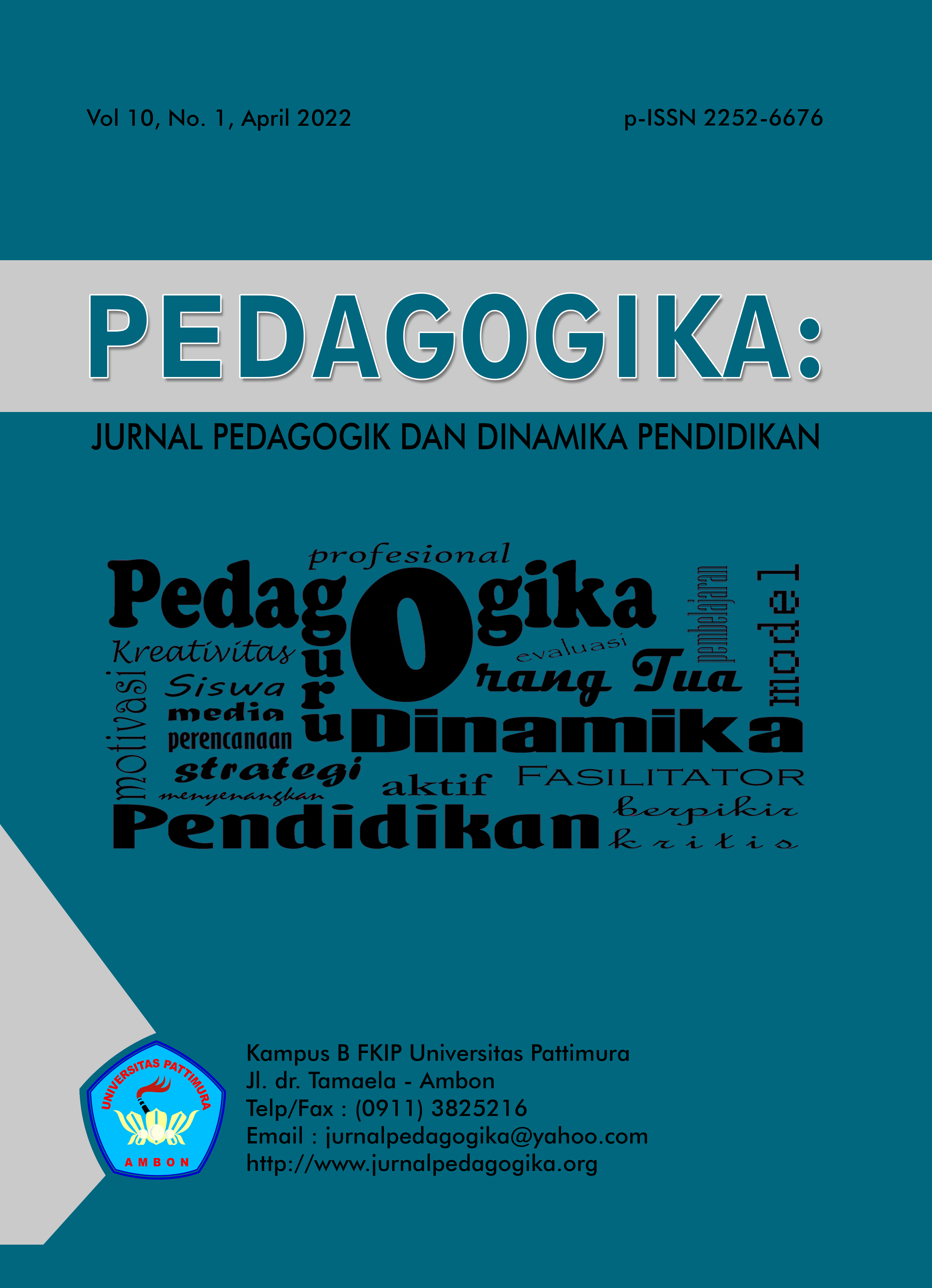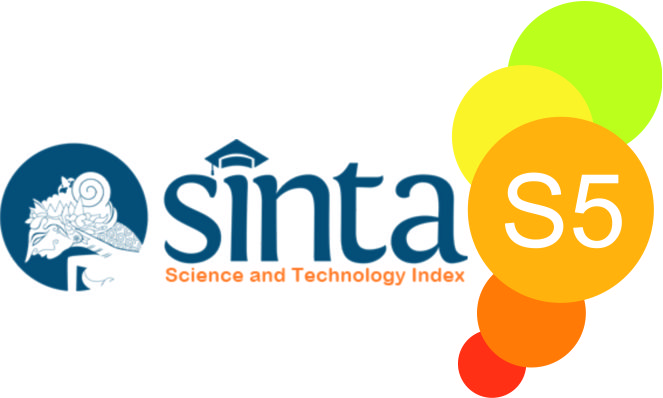PENGARUH MOTIVASI DENGAN KEMANDIRIAN BELAJAR SISWA SMK 2 NURHASANAH MEDAN DALAM PEMBELAJARAN DARING
Abstract
Online learning is learning that limits teachers and students to interact in conveying knowledge. The limitations of this interaction cause various kinds of obstacles in the implementation of learning. One of them is the low independence of student learning caused by the limited time to study, making it difficult for teachers to meet learning outcomes. Therefore, the purpose of this study was to determine whether there is an influence of learning motivation on student learning independence. The method used in this research is descriptive qualitative to provide whether or not there is an influence between motivation and student learning independence. The research was conducted at SMK 2 Nurhasanah Medan with a sample of 30 people. The instrument used is a questionnaire with 20 statements each. The analysis used is univariate analysis and chi square test. The results showed that there was an influence between motivation on student learning independence.
Downloads
References
Adlina, Z., Syahlan, & Matondang, A. (2021). Impact of E-Learning on Students in the Pandemic Covid-19. IAR Journal of Humanities and Social Science, 2(2): 68-71.
Adlina, Z., Syahlan, & Matondang, A. (2022). Peran Orang Tua dalam Proses Pembelajaran Daring. MUKADIMAH:Jurnal Pendidikan, Sejarah, dan Ilmu-Ilmu Sosial. 6(1), 4144.
Fatmawati, & Effendi, M. (2019). Pengaruh Motivasi Belajar dan Kemandirian Belajar Terhadap Nilai Mid Semester Genap Tahun Ajaran 2018/2019 Pada Mata Pelajaran Komunikasi Bisnis Siswa Kelas X Jurusan Bisnis Daring dan Pemasaran SMK Negeri 3 Padang. Jurnal EcoGen, 2(3).
Gowing, M.K. (2001). Measurement of individual emotional competence. dalam Daniel Goleman dan Cary Cherniss (ed.). The emotionally intelligent workplace: How to select for, measure, and improve emotional intelligence in individuals, groups, and organizations. Fransisco: Jossey-Bass.
Huda, M.N., Mulyono, Rosyida, I., & Wardono. (2019). Kemandirian Belajar Berbantuan Mobile Learning, disampaikan dalam Prosiding Seminar Nasional Matematika (PRISMA), Vol. 2. Jurusan Matematika, Universitas Negeri Semarang.
Kemalasari, L.D., & Ismanto, B. (2018). Pengaruh Motivasi dan Kedisiplinan Terhadap Kemandirian Belajar Pelajaran Ekonomi dikalangan Siswa Sekolah Menengah Atas. Satya Widya: Jurnal Penelitian Pengembangan Kependidikan, 34(2).
Rahma, N.S. (2021). Dampak Pembelajaran Daring Terhadap Motivasi Belajar Mahasiswa Selama Pandemic Covid-19. Genta Mulia, 12(1): 113-118.
Sardiman, A.M. (2016). Interaksi dan Motivasi Belajar Mengajar. Jakarta: PT Rajagrafindo Persada.
Septiana, W.A.S., & Sholeh, M.M.A. (2021). Pengaruh Motivasi Belajar terhadap Kemandirian Belajar Siswa Kelas Xi SMA Islam Sultan Agung 1 Semarang pada Mata Pelajaran Fiqih selama Masa Pandemi Covid-19. Sultan Agung Fundamental Research Journal, 2(1).
Souisa, M., & Huliselan, A. (2020). Motivasi Belajar Siswa SMP Negeri 13 Ambon. Jurnal Pedagogika dan Dinamika Pendidikan, 8(1): 73-80.
Suhendri, H. (2010). Pengaruh Kecerdasan Matematis–Logis dan Kemandirian Belajar Terhadap Hasil Belajar Matematika. Jurnal Formatif 1(1): 29-39.
Wagner, R. (1970). Edgar Dale: Professional. Theory Into Practice, 9(2), Retrieved from http://www.jstor.org/stable/1475566 , 89-95.
Wolo, K.A., & Nugroho, P.I. (2021). Pengaruh Pembelajaran Online terhadap Tingkat Motivasi Belajar Mahasiswa/Mahasiswi Feb Akuntansi UKSW di Masa Pandemi Covid 19. Jurnal Akuntansi Profesi, 12(1).
Copyright (c) 2022 PEDAGOGIKA: Jurnal Pedagogik dan Dinamika Pendidikan

This work is licensed under a Creative Commons Attribution-NonCommercial-ShareAlike 4.0 International License.









 This work is licensed under
This work is licensed under 